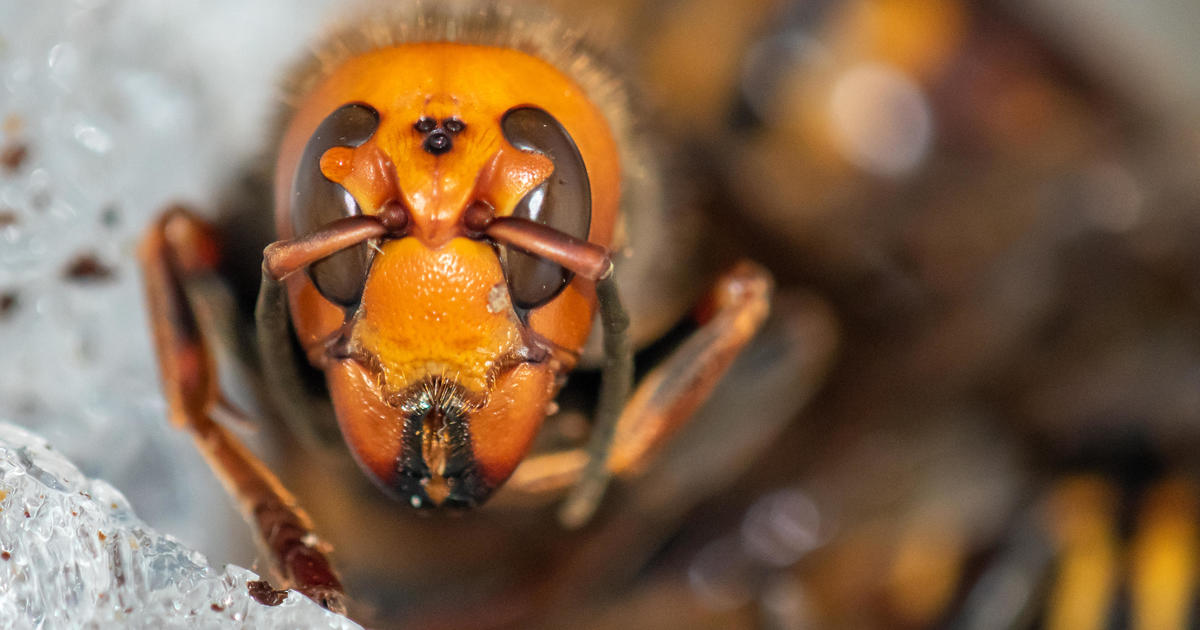
When murder hornets attack, bees will make "shrieks, fear screams and panic calls" to help their colony survive
CBSN
Asian giant hornets, also known as murder hornets, have spooked some residents over the past year after they invaded Washington state. But a new study shows that it's not just some people who are scared of the two-inch-long stinging insect — even bees are screaming and buzzing away when they invade.
The study, published Tuesday in the journal Royal Society Open Science, found that honey bees will buzz, run, and use loud, unique sounds to alert their fellow hive members when murder hornets attack. The sounds they make serve as a distinctive distress signal so other bees can prepare. Along with gathering at the entrance, bees will spread dung around the colony entrances in an effort to repel the hornets.
The researchers documented the bees' behavior in Vietnam, where they have been studying the interactions between the two insects for over seven years. They've collected thousands of signals the bees have made, documented in audio and video recordings like the one seen above.

Scientists say they've discovered the world's biggest coral, so huge it was mistaken for a shipwreck
Scientists say they have found the world's largest coral near the Pacific's Solomon Islands, announcing Thursday a major discovery "pulsing with life and color." The coral is so immense that researchers sailing the crystal waters of the Solomon archipelago initially thought they'd stumbled across a hulking shipwreck.










